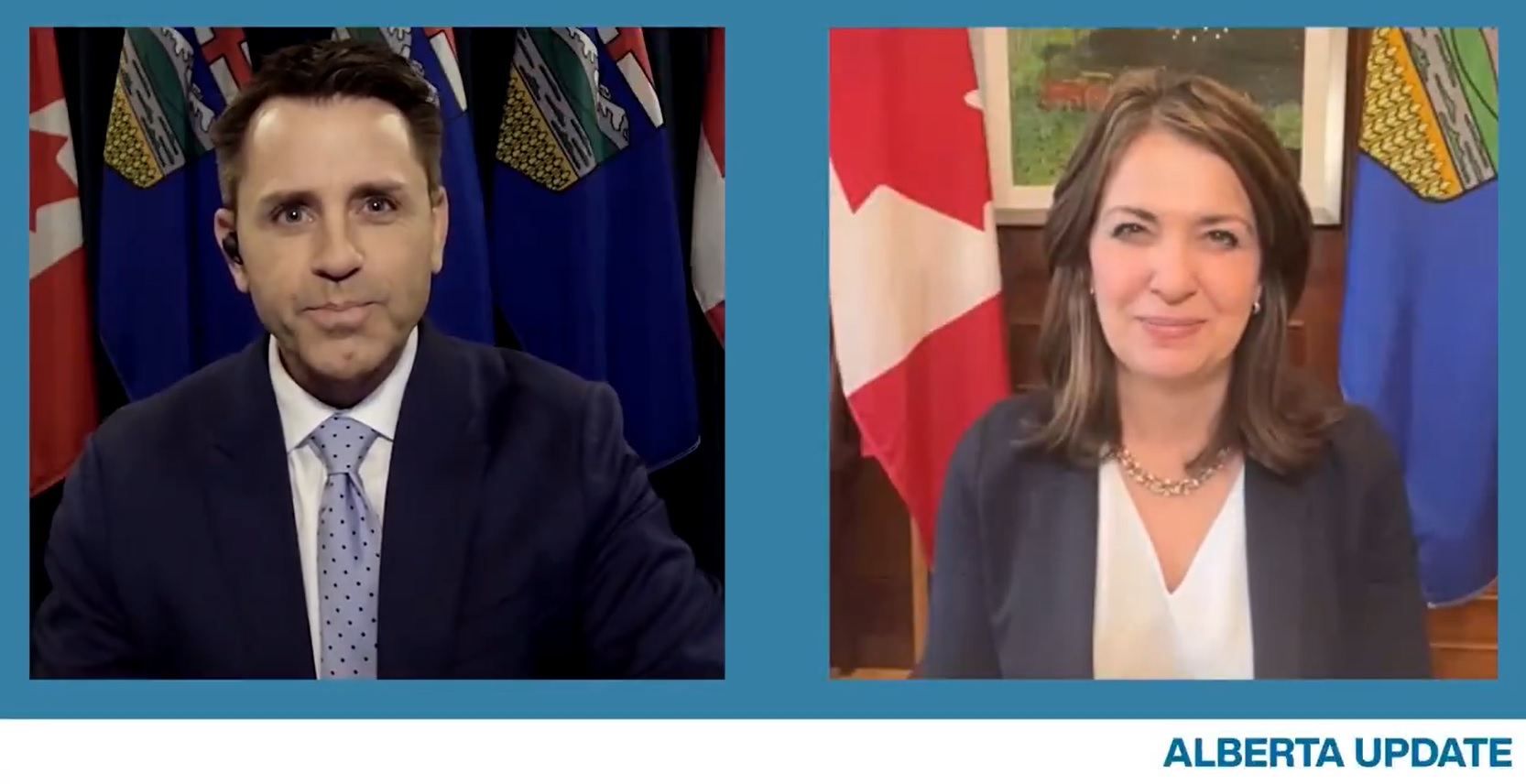The latest episode of Alberta Update delved into critical developments in Alberta’s political, economic, and intergovernmental landscape. Premier Danielle Smith shared insights into her government’s approach to U.S. relations, reactions to federal policy, and Alberta’s financial stability. The episode also featured announcements about key appointments and fiscal updates, depicting a province navigating a dynamic political and economic environment.
Premier Smith emphasized Alberta’s proactive efforts to strengthen its relationships with the United States. With significant economic ties—$88 billion in annual cross-border trade—Smith outlined her strategy to directly engage with U.S. policymakers.
“We’ve been building relationships with governors and congressmen,” Smith said, highlighting the work of Alberta’s Washington office and its representative, James Rajotte. She emphasized the importance of representing Alberta’s unique interests, distinct from Ottawa’s federal policies, particularly on energy and trade.
Smith shared plans to attend several key U.S. events in the coming months, including the Western Governors Association meeting, the National Governors Association conference, and the CERAWeek energy summit in Houston. These appearances aim to promote Alberta’s vast energy resources, including 200 billion barrels of recoverable oil reserves and extensive natural gas assets.
“Our message is clear: Alberta is the best friend, ally, and neighbor the United States could hope for,” Smith stated.
The discussion shifted to the federal government’s recently announced GST rebate on certain goods, effective mid-December to mid-February. While the initiative aims to alleviate the cost-of-living crisis, Smith criticized its implementation as “convoluted and counterproductive.”
“Consumers might delay their Christmas shopping or return goods to qualify for the rebate,” she argued, citing concerns raised by the Canadian Federation of Independent Business (CFIB). Instead, Smith advocated for eliminating the federal carbon tax as a more straightforward solution to alleviate financial burdens.
Smith also framed the rebate as a political move by Prime Minister Justin Trudeau to maintain the NDP’s support in Parliament, describing it as “a desperate attempt to cling to power.” She reiterated her call for a federal election to gauge public support for Trudeau’s policies.
The episode spotlighted the recent appointment of former Prime Minister Stephen Harper as chair of the Alberta Investment Management Corporation (AIMCo). The move aligns with the province’s broader efforts to instill confidence in AIMCo’s management of public pension funds.
“Stephen Harper’s experience as a master economist and former G7 leader uniquely positions him to attract investment and secure Alberta’s financial future,” Smith said. She lauded his expertise in international trade negotiations and financial crisis management as invaluable assets for AIMCo.
The premier’s government has also implemented changes at AIMCo to address concerns about high costs and inconsistent returns, signaling a commitment to greater transparency and efficiency.
The conversation concluded with Alberta’s latest financial report, which revealed a larger-than-expected surplus despite low oil prices. Finance Minister Nate Horner, set to provide additional details, has maintained a cautious approach to budget management.
Smith acknowledged the volatility of oil markets, with prices hovering below the $70 mark—lower than the $74 average required to balance Alberta’s budget.
“We’ve had a good six months, but we must remain prudent,” Smith said, emphasizing the need for balanced budgets and strategic spending. She highlighted plans to use any windfall surplus to reduce debt, bolster savings, and address one-time spending needs.
The premier stressed the importance of managing expectations, especially if oil prices remain low in the coming year, warning against overspending or making unsustainable commitments.
As Alberta continues to navigate complex challenges, the upcoming months will reveal how effectively these strategies translate into tangible benefits for its residents.

